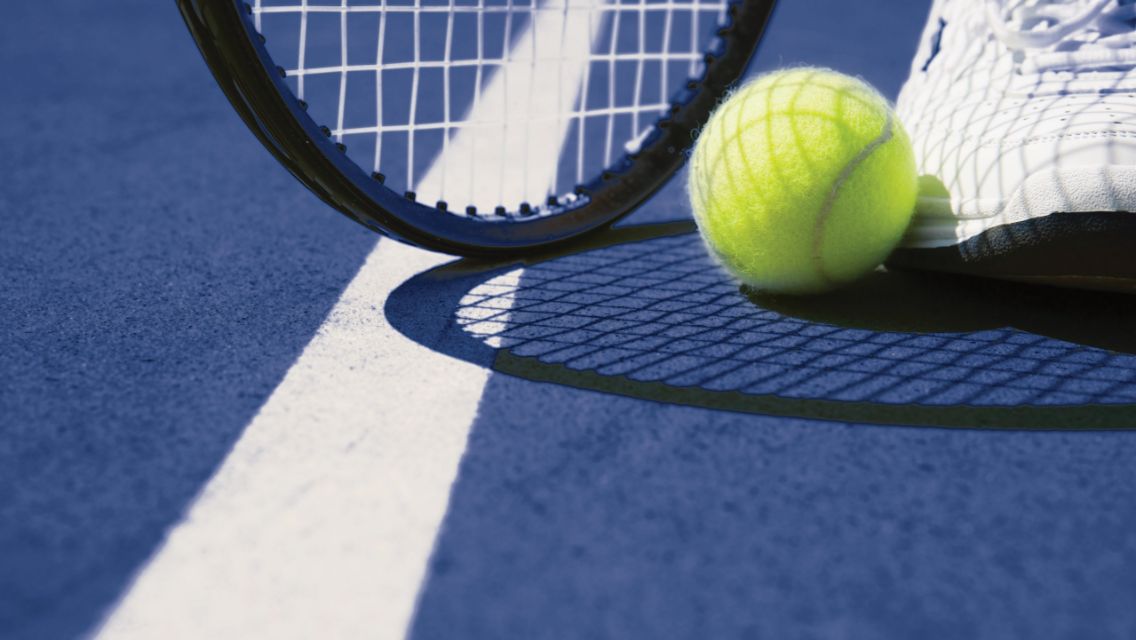Back in the 1970s and 80s, tennis surged in popularity in the United States, and it seemed everyone was playing. Several decades and many scientific studies later, it turns out the “it” sport is more than just an accessible, enjoyable form of recreation: It also offers a number of physical and psychological boons for our health.
While people of all ages and abilities participate in the sport today, Ajay Pant, senior director of racquet sports for Life Time, is optimistic that the sport will once again see a bigger increase in players.
“Tennis participation is growing in America, due in large part to people learning how healthy it can be for them,” says Pant. “Plus, it’s fun. And even better, it’s never too late to learn how to play.”
If you’re thinking of taking up the sport, these nine potential health benefits might just convince you to pick up a racquet and hit the court.
1. Increases longevity. A 2017 Danish study showed that when compared with leading a sedentary life, playing tennis extended one’s lifespan by 9.7 years — outdistancing badminton (6.2 years), soccer (4.7 years), cycling (3.7 years) and jogging (3.2 years). The difference, according to the reports, is the social interactions that tennis provides.
2. Develops social skills. Tennis is a communal sport. During the game, you’ll communicate with your partner, opponents, and/or teammates, and grace and courtesy are expected from all players. Watch any doubles team playing a match and you’ll notice that they talk between every point — strategy and support among players is paramount to success in the game.
3. Builds hand-eye and general-body coordination. In tennis, the player and the ball move independently of one another, making timing and coordination critical aspects of the sport. Lower-body agility is needed to move to the ball, while the upper body must simultaneously adjust to hit the ball. The more you practice and play, the more natural these moves will become — and the more confident you’ll feel on the court.
4. Grows confidence, optimism, and self-esteem. A survey of 200 active and sedentary people conducted at Southern Connecticut State University showed that tennis players exhibited higher self-esteem, vigor, and optimism than other athletes or non-athletes, as well as lower tension, anger, depression and fatigue.
5. Improves bone strength. Weight-bearing and resistance-training workouts are among the most effective bone builders — and tennis incorporates both. In younger, still-growing players, tennis helps strengthen and build density in developing bones. For players who have passed their growing years, time spent on court can help sustain bone density and prevent osteoporosis.
6. Increases aerobic and anaerobic fitness. Tennis matches typically last one to two hours — and sometimes go longer. Being active for this length of time can boost aerobic capacity, improving cardiovascular health and helping you burn fat more efficiently. The game also demands short, intense bursts of activity that are followed by brief periods of rest. Those intervals can increase anaerobic fitness, helping to train your muscles to use oxygen more efficiently.
7. Releases stress. Playing tennis forces you to focus on every point and be in the present moment. Where should you serve? Where will the return likely come? How do you win the point? This naturally allows your brain to take a break from your to-do list, worries, daily distractions or other stressors. Plus, exercise increases endorphins, which can help relieve stress, too.
8. Builds leg strength and dynamic balance. Tennis requires you to stop, start and change directions quickly — whether during a match or in a practice session. This type of leg movement helps build strength, while the swift actions also help improve your sense of balance and proprioception (the ability to know where your body is in a given space).
9. Boosts brain power. Tennis requires mental alertness and critical and tactical thinking. When you play, you are strengthening the planning, tactical, agility, and coordination centers of your brain. Because of this, scientists at the University of Illinois believe that tennis promotes a lifetime of continued brain development.
In addition to all of these benefits, you can’t count out perhaps one of the biggest advantages: Tennis is fun. When you’re on the court, you’ll smile, laugh, make connections, and have a great time.





